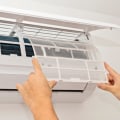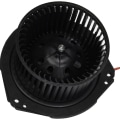If you find that your air conditioner is not in the best condition, it may be time to think about replacing it. Not only will it be better for the environment, but it will also be more energy efficient. According to the Department of Energy, you can save up to 3 percent on your utility bill for every degree you increase the temperature set for central air. Although replacing your air conditioning unit is an investment, there are several incentives that make it worthwhile.
When deciding whether to repair or replace your existing air conditioning unit, there are a few factors to consider. The age of the unit, its performance and efficiency, and the cost of any necessary repairs are all important considerations. Older units tend to be less efficient than newer ones, so if your HVAC unit is more than four years old, it may be time to think about replacing it. Additionally, if your air conditioner isn't working properly, you may want to consider replacing it.
Make sure the thermostat is set to a comfortable temperature and you'll be surprised how much it can cool the air. If properly maintained and serviced at least once a year, your unit can continue to function well for longer. Another factor to consider when replacing your air conditioner is the type of refrigerant used. The price of R-22 refrigerant has increased considerably, so if you are looking for a more cost-effective option, you may want to consider a unit that does not use R-22. Additionally, when replacing the central air, you should check if you really need a system the same size as your old unit or if you can reduce it a bit. When considering replacing your air conditioner, it's important to weigh all of these factors carefully. It's also important to consult with an HVAC professional who can help you determine which type of system is best for your home and budget.
With the right information and guidance, you can make an informed decision about replacing your air conditioner and enjoy improved comfort and energy savings for years to come.


